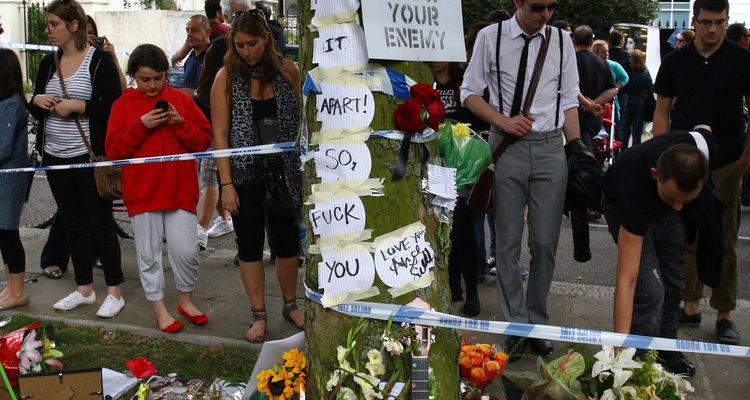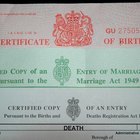
At some time in your life, you lose a family member or loved one. You will need to decide various service options such as where and when to have the service, who will officiate and service content. Some people plan a private funeral or burial rather than a public service. A private service limits those who may attend to invited guests.
Private Service Attendance
If the obituary says the services are private, this means that attendance at the funeral is by invitation only. Attendance may be restricted to family and a few close friends. This custom allows the family to mourn privately and deal with their grief without a lot of people intruding. The family may allow friends to come to a viewing prior to the funeral. Those not receiving an invitation should not show up for the funeral uninvited.
Funeral Etiquette
If you receive an invitation to a private funeral service, respond to the invitation with a call or a short visit to see the family. Often the invitation comes through a phone call from a family member, so you can respond immediately to the invitation. When you cannot attend, say so and express your sorrow for the death. Make note of the details and ask if there is anything else you need to do if you plan to attend.
Private Funeral, Public Memorial
People understand that the family needs time to grieve, but often want to attend a service. Accommodate your need for privacy by planning a private funeral now and a public memorial service at a later date. This allows you time to come to grips with your loss without totally excluding those who want to support you and honor the deceased. Explain to those who ask about the funeral that the service will be private and that you will notify them in a few weeks or months with the details of a memorial service they are welcome to attend.
Private Service Arrangements
Private services may occur at the funeral home, church or at the gravesite. The pastor, funeral director or other officiant may preside, as with any other funeral service. However, the family may elect to keep the arrangements secret so outsiders don’t show up uninvited.
Expressing Condolences
Send a card, letter of condolence, flowers or a meal if you don't receive an invitation to the funeral. Make a donation in memory of the deceased to a charity she supported or her church. If you aren't sure where to send your gift, ask the family if they have a suggestion after you have given them some time to privately grieve.
Related Articles

Funeral Memorial Check Etiquette

How to Obtain a Death Certificate in ...

Donations in Lieu of Flowers for a ...

What Do I Tell My Friend Whose Grandma ...

Etiquette for Thank You Notes After a ...

How Long After You Bake Should You Put ...

How to Forgive a Family Betrayal

What to Wear to a Baptist Funeral on ...

Good Things to Say When a Friend's ...

When Should I Send Bridal Shower ...

How to Cut All Ties From a Verbally ...

How to Find Ancestry in Singapore

How to Write Letters to U.S. Soldiers ...

How to Write a Biographical Obituary

How to Hire a Minister for a Funeral

How to Recognize Grandparents Dead & ...

How to Cope With a Spouse's ...

What Is the Proper Etiquette for ...

How to Ask for Money on Wedding ...

What to Say to a Grieving Family After ...
References
Writer Bio
Rev. Kathryn Rateliff Barr has taught birth, parenting, vaccinations and alternative medicine classes since 1994. She is a pastoral family counselor and has parented birth, step, adopted and foster children. She holds bachelor's degrees in English and history from Centenary College of Louisiana. Studies include midwifery, naturopathy and other alternative therapies.
Photo Credits
Neil Mockford/Getty Images Entertainment/Getty Images